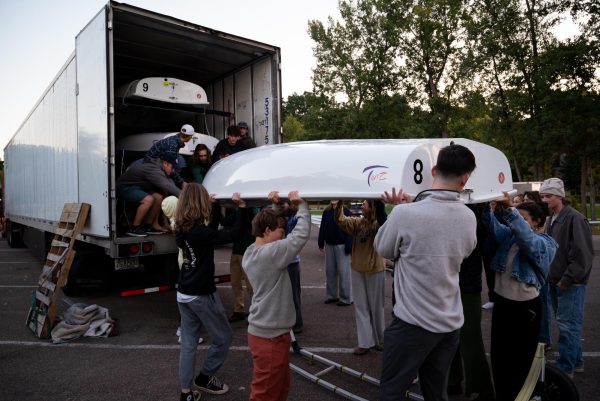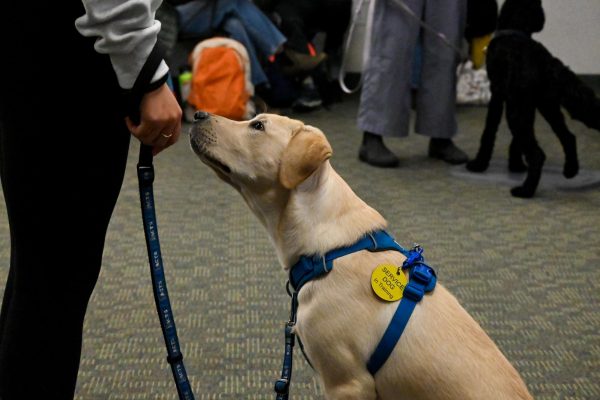UVM charts new course for Navigate
Changes to be made to address faculty concerns
UVM officials have made changes to a new advising software in response to student and faculty concerns over privacy and bias in advising.
The UVM administration has responded to concerns outlined by over 80 faculty members in a Sept. 26 letter. The letter asked for UVM to review its newest software for academic advising, Navigate, and the administration has since made changes.
The changes include:
The removal of a student’s age and date of birth from student information.
The removal of the “categories” section from the Professor Role. The “categories” section contains information such as holds on a students account and if the student received a Federal Pell Grant.
UVM Administration is also reviewing the labels, descriptors and drop-down menu items to make sure that they don’t accidentally give out confidential information.
The University is also looking into removing the “Categories” from the class roster in the advising role.
In the future, faculty will use dual verification when logging in to Navigate.
Original concerns included the broad access of student information, as anyone with advising duties can access any undergraduate student’s records if they search them, regardless if the student is their advisee, according to the letter.
Those with Navigate credentials have three different levels of access: staff access, faculty teaching access or advising access, said Patricia Prelock, interim provost and senior vice president. There are currently 303 people with staff access, 406 with faculty teaching access and 496 with adviser access, she said.
Those with staff access are usually made up of individuals in jobs that help with student support, such as the Office of Student Services, professional advisors and Student Financial Services, Prelock said.
These individuals can search student records, she said.
The professor role, made up of individuals that teach but don’t advise, have very limited access, Prelock said. Professors can only access students they teach, and can only see information such as a student’s academic records, home address, phone number and if a student has had an academic alert.
Professors cannot access the categories’ section, which holds information such as whether someone is a first generation college student, Prelock said.
Those who are a faculty adviser teach and advise students. These individuals have access to the records of all their classroom students, their advisees and have the ability to query access to all students, she said.
David Massell, history professor and student academic adviser, said he is not against the use of Navigate, though some things may need to be tweaked.
“From my point of view it is a potentially useful tool for advising and my interest, like those of my colleagues, is the best possible education for the students,” Massell said. “If this is useful in this regard, all power to it, but find ways to tweak the implementation of Navigate so that we don’t unnecessarily breach students’ privacy.”
Another concern in the Sept. 26 letter included how faculty’s access to student information can result in unconscious bias.
“Under the current configuration, even faculty using the system for legitimate purposes may inadvertently see the information that can cause adverse effects for students, including unconscious bias,” the letter stated.
In response to this concern, Prelock said that everyone has an unconscious bias that we must be mindful of.
“Navigate doesn’t cause unconscious bias, that comes from within, so I don’t see that as an excuse to say we don’t want to use a system that might create unconscious bias,” Prelock said. “The system does not create it. It lies within us. We know it’s real, so let’s be mindful of it when we talk with a student.”
Training for how to use the system will include how to handle unconscious bias, which is something that is also included in the University’s diversity and inclusion training, Prelock said.
A Navigate Advisory Committee is also being created to further evaluate how the software is working and any further concerns. This committee will consist of students, faculty members and Student Services Professional, Prelock said.
“This will be a high level advisory committee that will look at all the training materials, decide how best to train students in how to use it [Navigate] and how best to train faculty advisors in how to use it and then if there are going to be any features when do we turn on or turn off a feature,” Prelock said.
Senior Nick Bouffard, an SGA senator on the Academic Affairs Committee, is in the process of writing a resolution concerning student privacy in terms of Navigate.
SGA is calling for more student choice concerning who has access to their data. Navigate would be defaulted to restricted access where students can then allow specific faculty to access their information.
SGA will vote on this resolution during their Nov. 12 meeting.
“The intention of the resolution is not to discount the use of the Advisory Committee but to show the student drive behind these ideas,” Bouffard said.
Bouffard will also serve as one of the students on the Navigate Advisory Committee, Prelock said.
The Committee is looking for a second student, a first or second-year student who has downloaded the Navigate app and has been advised using the software, Prelock said in a Nov. 6 statement to the Cynic.
Julie Roberts, linguistic professor and president of United Academics, was one of the 80 faculty members to sign the Sept. 26 letter. Roberts said that the changes were a step in the right direction.
“What I particularly liked is the fact that are now conversations about it instead of just having it handed down,” Roberts said. “I think that sets a much better tone.”











